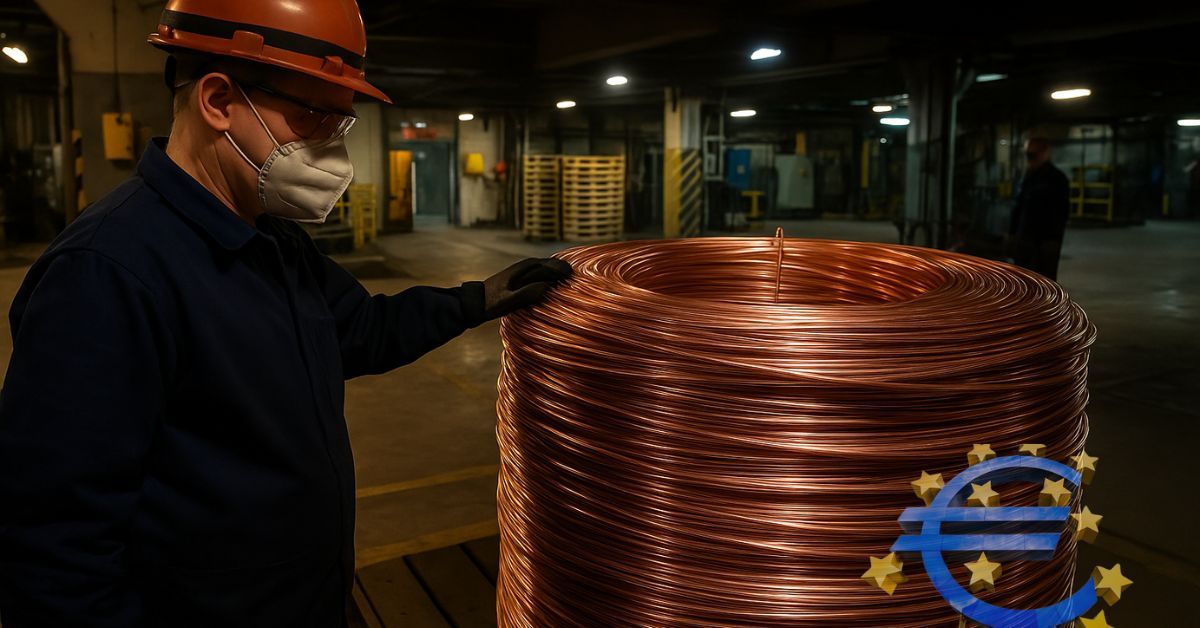Share
Homepage
News
Europe’s Metal Crisis: Rising Energy Costs & Global Economic Impact
Europe’s Metal Crisis: Rising Energy Costs & Global Economic Impact
31 tháng 3 2025

Europe is currently facing a serious crisis in the metal production industry due to soaring energy prices and geopolitical instability. This situation is not only impacting the regional economy but also creating ripple effects across global markets.
1. Causes of the Metal Crisis in Europe
Rising Energy Costs
- The European energy crisis has significantly increased production costs for metals like aluminum, zinc, copper, and nickel.
Shutdown of Metallurgical Plants
- Many major metallurgical plants in Germany, France, and Italy have reduced production or ceased operations entirely.
Dependency on Imports
- Europe is increasingly dependent on metal imports from China, leading to greater reliance on external supply chains.
2. Global Economic Impacts
Supply Chain Disruptions
A shortage of metals is significantly affecting key industries:
- Automotive Industry: Aluminum and nickel are essential for manufacturing cars and electric vehicles. A metal shortage could increase vehicle prices and slow down EV development.
- High-Tech Industry: Copper and rare earth metals are crucial for semiconductors, lithium-ion batteries, and electronic devices. Supply disruptions may lead to higher prices for tech products.
- Construction Industry: Aluminum and steel are fundamental materials in construction. Shortages could delay major global infrastructure projects.
Inflation Surge
When metal supply decreases, prices rise, increasing production costs across industries and fueling global inflation.
For example:
- Aluminum prices have surged 30% in a year due to supply disruptions.
- Copper prices are also trending upward amid concerns over Europe’s energy crisis.
Growing Dependence on China
Reduced European metal production means greater reliance on imports, particularly from China. This dependency makes the global economy more vulnerable if China changes export policies or restricts supply.
Financial Market Volatility
- Sharp fluctuations in metal prices may push investors toward safer assets like gold and bonds, increasing stock market instability.
- The stock values of metal production companies and related industries could drop significantly, impacting investment funds and financial markets.
Risk of Global Economic Recession
If metal prices continue to rise and industrial production slows, global economic growth could stall. Countries that rely on European metal imports, such as the U.S., Japan, and South Korea, may face higher production costs and economic downturn risks.
3. Solutions for Europe
Supporting the Metallurgical Industry
- The EU must introduce financial aid packages and energy subsidies to help metal manufacturers remain operational.
- Tax reductions and investment incentives should be implemented to boost domestic metal production.
Enhancing Domestic Metal Production
- Investing in metal extraction and processing technologies to reduce import dependency.
- Encouraging metal recycling policies to supplement supply shortages.
Advancing Green Energy
- Expanding renewable energy sources such as solar and wind power to lower energy costs for the metal industry.
- Developing energy-efficient technologies in metal production.
Economic and Trade Cooperation
- Negotiating with trade partners to diversify metal supply sources, reducing reliance on a single market.
- Establishing strategic alliances among European nations to support each other’s metal supply needs.
Building Strategic Metal Reserves
- Establishing metal stockpiles to mitigate market shocks and ensure material security for industrial production.
- Implementing efficient resource management strategies to maintain a stable long-term supply.
4. Conclusion
The European metal crisis is not just a regional issue—it has global consequences. Without immediate and sustainable measures, the world could face heightened economic risks, including a potential recession. Europe must adopt long-term strategies to sustain metal production and ensure a stable supply chain for the future.
Infofinance.com
#MetalCrisis #GlobalEconomy #SupplyChainDisruptions #MetalPrices #EconomicRecession #Aluminum #Copper #Europe #FinancialMarkets #Metallurgy #EUEconomy
All information on our website is for general reference only, investors need to consider and take responsibility for all their investment actions. Info Finance is not responsible for any actions of investors.